-
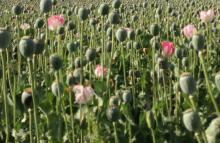
Expert: Dr. Molly Charles, Tata Institute of Social Sciences, Mumbai.
Q.1: IS INDIA BECOMING A MAJOR TRANSIT POINT OF INTERNATIONAL ILLICIT DRUG TRADE?
-

In January 2006, the World Health Organization (WHO) estimated that HIV/AIDS has killed 25 million people since it was first identified twenty-five years ago, in 1981. In India, the first case of HIV was detected in Chennai in 1986. Now, as per the UNAIDS estimate, HIV affected people in India is staggering 5.7 million. NACO (National Aids Control Organisation) has put the figure to be 5.2 million. India is second only to South Africa in terms of the overall number of people living with the disease. Although, the statistics vary with various reports, the threat within persists.
-

In comparison to the indiscriminate violence perpetrated by Islamic terrorists, the Naxal menace (also infamous as Left-wing Extremist or Maoist) has been plaguing India for quite some time as one of the biggest internal security challenges. The most affected Chattisgarh state witnessed one of the worst-ever massacres on 17 July when armed Naxalites attacked the Errabore Relief Camp in the Dantewada district, killing some 30 unarmed civilians and injuring scores. The attackers have abducted more than 45 people in that fateful night.
-
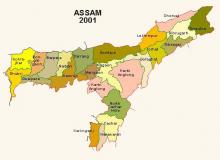
The peace process between the Government of India and United Liberation Front of Asom (ULFA) is in a fix. While the process of direct negotiation between the ULFA and Union government has started to become a reality, several untoward incidents have posed question marks. The third round of talks between the ULFA appointed PCG (People’s Consultative Group) and the Government of India on 22 June in New Delhi ended on a positive note with both parties agreeing to work out the modalities for direct talks between the ULFA and the Union government.
-

On 11 July, India’s commercial hub, Mumbai (in Maharastra) and Jammu & Kashmir State witnessed a series of bomb and Grenade attacks perpetrated by suspected Islamic terrorists.
In Mumbai, over 170 people were killed, and over 400 people have been injured in a string of seven powerful blasts that targeted suburban trains. The toll is increasing every hour. The timing of the blasts coincided with the peak hour traffic when the commuters returned from work around 6 PM.
-
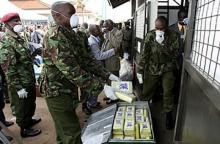
The recent illegal drug hauls in various parts of India and a couple of high-profile drug abuse cases involving people in power brought the spotlight back onto illegal drug issues in the country. India’s Anti Narcotics Bureau and the Directorate of Revenue Intelligence have seized drugs ranging from cocaine to heroin and other opiates worth millions of dollars in the international market within the last few months. The fact is drug trafficking and illegal drug abuse have been taking place in the subcontinent for a very long but have been relatively ignored.
-

Last May, Singari, a young mother, of Kharijhola village in Koraput district, Orissa, died just after giving birth to her son. The reason is the lack of access to basic health amenities. This is not an isolated case. Every second hour a woman dies due to pregnancy-related complications in Koraput. From the time of conception, death chases women like a shadow. The story of Singari is an imposing symbol of the high maternal mortality rate that grips India. While Orissa has the highest rate of maternal mortality rate in India, Koraput has one of the highest rates in the state.
-
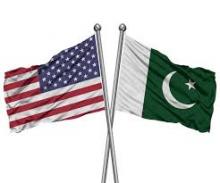
Indo-US relations have been on the upswing since the signing of the coveted nuclear deal during the US President’s visit to India in March. On the other hand, the Americans have not forgotten their old ally, Pakistan, altogether. The seriousness of the AQ Khan affair prohibits Americans from offering nuclear energy to Pakistan, but on the military front, they are ready to help their ally considerably.
-
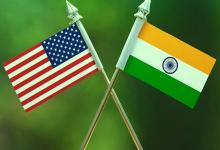
As India and the US started technical talks early this month over a formal bilateral nuclear cooperation agreement, the focus has once again shifted to the difficulties both countries are facing in coming to a consensus. While India and the US are facing severe criticisms over the high-profile agreement, the situation is more complex on the US side. Though this is not surprising in the light of the US conceding ‘too’ much and India not losing ‘anything’, the clock is ticking for the passage of the deal in the US Congress.
-
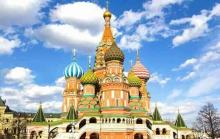
President Vladimir Putin’s recent address to the Russian Parliament has attracted much attention for obvious reasons. Pitched betwixt his second term as the President, which according to some could be extended through a constitutional amendment and his seemingly carefully calculated desire to name the successor, the speech reflects three interrelated factors – robust nationalism, comprehensive national power, and a reassertion of the state in global politics – a concoction of which conforms to what is known as realism in international relations.
Paxton ported to drupal by DropThemes.in